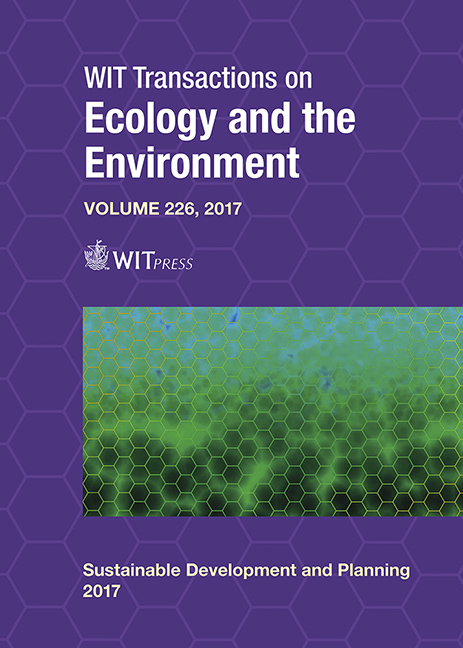BIODIVERSITY ACCOUNTING OF CITIES: A CASE STUDY OF KOLKATA, INDIA
Price
Free (open access)
Transaction
Volume
226
Pages
12
Page Range
815 - 826
Published
2017
Size
453 kb
Paper DOI
10.2495/SDP170711
Copyright
WIT Press
Author(s)
SOUPORNI PAUL, SUCHANDRA BARDHAN
Abstract
The link between urban development and its impact on the environment is always debatable. The effects of urbanization on Indian cities have mostly resulted in the loss of natural ecosystems and deterioration of the urban environment. Biodiversity, as a significant parameter of an urban ecosystem, is essential for human society because of the goods and services it provides. UNEP’s foresight report links biodiversity with urban sustainability and resilience, identifying it as one of the issues of ‘The 21 Issues of 21st Century’ under the section of food, biodiversity and land issues, which seems particularly important in the context of countries with developing economies. Since biodiversity conservation cannot happen in isolation, the ecological performance of urban areas with respect to biodiversity assumes high significance. In light of the IUCN Aichi Biodiversity Targets, the need for benchmarking the urban biodiversity status of the city of Kolkata (formerly Calcutta) in eastern India was, thus, strongly felt. A baseline study would also be a logical starting point for the adoption of a robust biodiversity strategy and action plan for Kolkata. This paper presents such an assessment, using the City Biodiversity Index as a tool, based on qualitative as well as quantitative approaches to acquire quantitative data on the populations of key biodiversity indicators. It also attempts to benchmark the current scenario for future conservation efforts and evaluate progress in the arresting rate of biodiversity loss in the city. The results of the study indicate a reasonable score in the variety of native biodiversity, courtesy of the rich natural history of Kolkata, while its performance in the proportion of natural areas and ecosystem services is relatively poor and demands attention.
Keywords
biodiversity, ecosystem services, urban environment, natural systems





